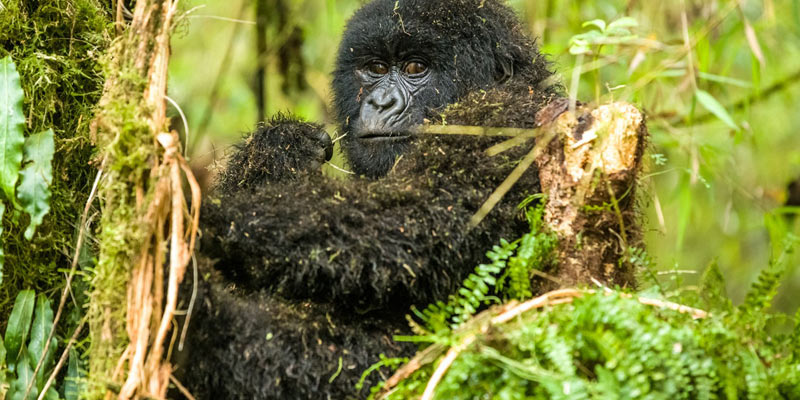The History and Significance of Bwindi Impenetrable National Park
Bwindi Impenetrable National Park, located in southwestern Uganda, is a UNESCO World Heritage site renowned for its biodiversity and cultural heritage. The park’s dense, ancient rainforest is home to some of the world’s last remaining mountain gorillas, making it a site of both ecological and conservation significance. Understanding Bwindi’s history and its importance provides context for the conservation efforts and the tourism experiences that draw travelers from around the globe.
Origins and Establishment
The area now known as Bwindi Impenetrable National Park has a history that stretches back thousands of years. The forest has remained largely undisturbed due to its impenetrable terrain, allowing wildlife and plant species to thrive over centuries. Recognition of the forest’s ecological importance began in the early 20th century, as conservationists noted the presence of endangered species, particularly mountain gorillas. Bwindi was formally gazetted as a national park in 1991, a move that provided legal protection to its unique ecosystem and marked a significant step in Uganda’s conservation efforts.
Ecological Significance
Bwindi’s ecological importance is profound. Covering approximately 321 square kilometers, the park is characterized by steep hills, deep valleys, and dense vegetation, creating diverse habitats that support over 120 mammal species and more than 350 bird species. The mountain gorilla, Bwindi’s most iconic inhabitant, is a symbol of global conservation efforts. Protecting the gorillas has also safeguarded countless other species and the forest ecosystem as a whole. The park’s ancient trees, some over 300 years old, play a crucial role in maintaining soil stability, water cycles, and climate regulation within the region.
Cultural Heritage
Bwindi is not only a haven for wildlife but also a landscape of cultural significance. The forest has been home to the Batwa people, often referred to as the forest people, for generations. The Batwa have traditionally relied on the forest for sustenance, medicine, and spiritual practices, developing an intricate knowledge of its flora and fauna. While many Batwa communities were relocated when the park was established, their cultural heritage remains deeply connected to Bwindi. Visits to Batwa villages provide insight into their traditional way of life and underscore the intertwined relationship between human culture and natural conservation.
Conservation Efforts and Global Recognition
The significance of Bwindi has been recognized on a global scale. Its designation as a UNESCO World Heritage site highlights the park’s universal value and the need for ongoing conservation. Various initiatives have been implemented to protect the forest, including anti-poaching measures, sustainable tourism programs, and community engagement projects. These efforts ensure that the park continues to thrive while providing economic benefits to surrounding communities. Gorilla trekking, which follows strict conservation guidelines, exemplifies how tourism can support both wildlife protection and local livelihoods.
Tourism and Education
Tourism in Bwindi serves not only as a recreational activity but also as an educational platform. Visitors gain awareness of the delicate balance between human activity and environmental preservation. Guided treks, nature walks, and cultural experiences allow travelers to observe wildlife responsibly, learn about conservation strategies, and appreciate the forest’s ecological complexity. These experiences foster a deeper understanding of the importance of protecting endangered species and maintaining biodiversity.
Conclusion
Bwindi Impenetrable National Park is a remarkable convergence of natural wonder, cultural heritage, and conservation achievement. Its history, ecological richness, and significance to both local communities and the global conservation community make it a destination of extraordinary value. For travelers seeking a well-organized and enriching journey through this iconic forest, booking with Cyro Tours & Travel ensures that every aspect of the trip is managed professionally, allowing for an unforgettable exploration of Uganda’s natural and cultural treasures.



